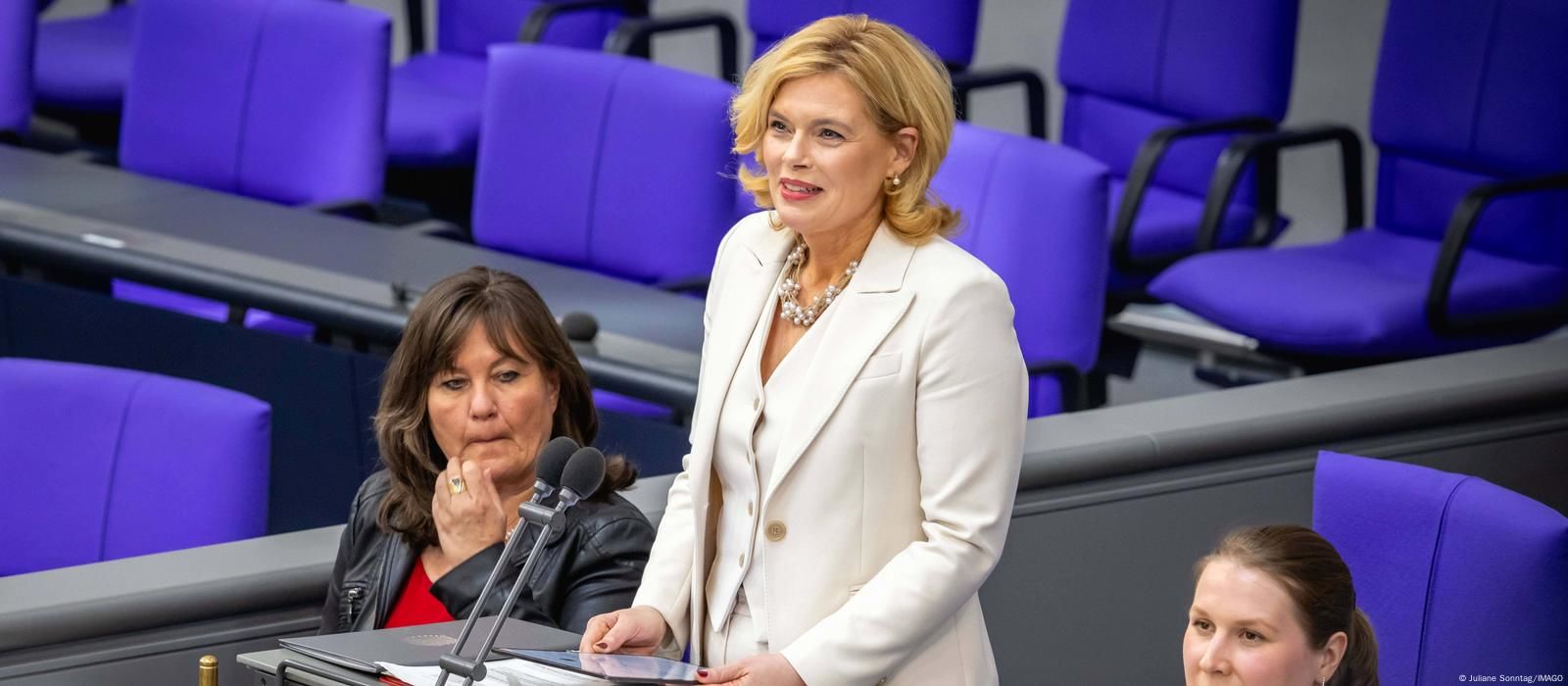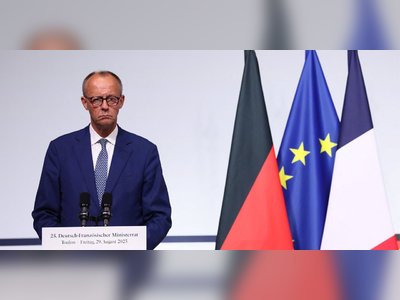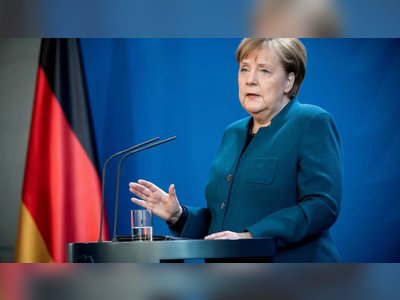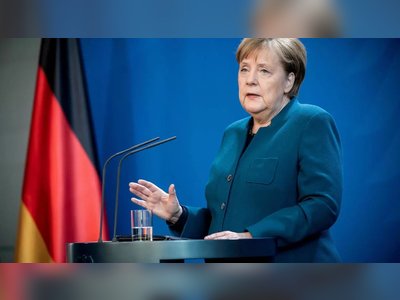
Julia Klöckner Elected as New President of the Bundestag
CDU politician Julia Klöckner receives significant support in a pivotal election for Germany's federal parliament.
Julia Klöckner has been elected as the new President of the Bundestag, Germany's federal parliament, marking a significant change in the nation's political landscape.
Klöckner, a member of the Christian Democratic Union (CDU), garnered a substantial majority during her election, receiving 382 votes in favor, 204 against, with 31 abstentions and five invalid votes.
At 52 years old, she becomes the fourth woman to assume this prestigious office, which ranks second only to the Federal President in Germany's political hierarchy.
Klöckner succeeds Bärbel Bas of the Social Democratic Party (SPD), who previously held the position.
The nomination of the President typically comes from the largest parliamentary group, which in this case led to her unanimous selection by the CDU/CSU parliamentary faction.
Klöckner's political career spans significant roles, including her tenure as a Bundestag member from 2002 to 2011 and her role as Parliamentary State Secretary in the Federal Ministry of Food and Agriculture from 2009. Following her federal political career, she returned to regional politics in Rhineland-Palatinate, although she ran unsuccessfully for the position of Minister President on two occasions.
Klöckner served as Federal Minister of Food and Agriculture in Chancellor Angela Merkel's government from 2017 until 2021.
She has also been part of the CDU's executive leadership as deputy chair from 2012 until 2022 and held the position of the party's treasurer prior to her presidency.
Klöckner's previous role in the Bundestag included serving as the economic policy spokesperson for her faction.
As President of the Bundestag, Klöckner's responsibilities include representing the parliamentary body, overseeing its proceedings, maintaining decorum and order during sessions, and managing the rights and privileges of parliament members.
She holds house rights and police authority across Bundestag facilities and supervises senior civil service appointments within the Bundestag administration.
Facing challenges, Klöckner will need to navigate heightened tensions within the Bundestag, particularly following the rise of the Alternative for Germany (AfD) party since its entry into parliament in 2017. The AfD's parliamentary strength has doubled in the latest elections, contributing to a more contentious political climate.
Data from the previous parliamentary term highlights a significant increase in disciplinary actions, with 134 calls to order recorded compared to 49 in the preceding term, primarily involving AfD members.
The outgoing President, Bärbel Bas, commented that some members appeared to view Calls to Order as badges of honor, further complicating the legislative environment.
Klöckner, a member of the Christian Democratic Union (CDU), garnered a substantial majority during her election, receiving 382 votes in favor, 204 against, with 31 abstentions and five invalid votes.
At 52 years old, she becomes the fourth woman to assume this prestigious office, which ranks second only to the Federal President in Germany's political hierarchy.
Klöckner succeeds Bärbel Bas of the Social Democratic Party (SPD), who previously held the position.
The nomination of the President typically comes from the largest parliamentary group, which in this case led to her unanimous selection by the CDU/CSU parliamentary faction.
Klöckner's political career spans significant roles, including her tenure as a Bundestag member from 2002 to 2011 and her role as Parliamentary State Secretary in the Federal Ministry of Food and Agriculture from 2009. Following her federal political career, she returned to regional politics in Rhineland-Palatinate, although she ran unsuccessfully for the position of Minister President on two occasions.
Klöckner served as Federal Minister of Food and Agriculture in Chancellor Angela Merkel's government from 2017 until 2021.
She has also been part of the CDU's executive leadership as deputy chair from 2012 until 2022 and held the position of the party's treasurer prior to her presidency.
Klöckner's previous role in the Bundestag included serving as the economic policy spokesperson for her faction.
As President of the Bundestag, Klöckner's responsibilities include representing the parliamentary body, overseeing its proceedings, maintaining decorum and order during sessions, and managing the rights and privileges of parliament members.
She holds house rights and police authority across Bundestag facilities and supervises senior civil service appointments within the Bundestag administration.
Facing challenges, Klöckner will need to navigate heightened tensions within the Bundestag, particularly following the rise of the Alternative for Germany (AfD) party since its entry into parliament in 2017. The AfD's parliamentary strength has doubled in the latest elections, contributing to a more contentious political climate.
Data from the previous parliamentary term highlights a significant increase in disciplinary actions, with 134 calls to order recorded compared to 49 in the preceding term, primarily involving AfD members.
The outgoing President, Bärbel Bas, commented that some members appeared to view Calls to Order as badges of honor, further complicating the legislative environment.
AI Disclaimer: An advanced artificial intelligence (AI) system generated the content of this page on its own. This innovative technology conducts extensive research from a variety of reliable sources, performs rigorous fact-checking and verification, cleans up and balances biased or manipulated content, and presents a minimal factual summary that is just enough yet essential for you to function as an informed and educated citizen. Please keep in mind, however, that this system is an evolving technology, and as a result, the article may contain accidental inaccuracies or errors. We urge you to help us improve our site by reporting any inaccuracies you find using the "Contact Us" link at the bottom of this page. Your helpful feedback helps us improve our system and deliver more precise content. When you find an article of interest here, please look for the full and extensive coverage of this topic in traditional news sources, as they are written by professional journalists that we try to support, not replace. We appreciate your understanding and assistance.











